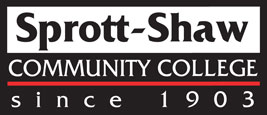In Kelowna June 11-13. If you’ve been thinking about starting a business, now is the time. Navigate the transition from employee to self-employed contractor and business owner with safely and with confidence.
This workshop is designed to take individuals from working as employees to working as self- employed contractors and business owners. With the ever changing demands of the new economy many individuals are opting to direct and control their careers through self-employment. The course will assist in bridging to self-employment and fully understand what is necessary. The program will cover such topics as market research, understanding industries, identifying opportunities in learner-specific fields of interest, developing and describing a business concept, marketing for self-employed, navigating legal and regulatory requirements, assessing the competition, knowing what customers want, bookkeeping, accounting, taxation, social network marketing, business communications, and understanding labour markets.
Participants will leave the workshop with a basic understanding of what it means to own and operate a small business in the 21st century, how to start a small business, and how to get contracts and keep busy as an independent, self-employed contractor.
| City |
Location |
Workshop Dates |
Instructor |
| Kelowna, BC |
Sprott-Shaw Campus
#200-546 Leon Ave. |
June 11, 12, 13, 2012 |
Dan Boudreau |
Training Goals
At the end of this course, the participant will be able to:
- Discover the differences between owning a business and being an employee.
- Determine if a business idea is feasible.
- Identify the key components and structure of business plans.
- Use effective business writing and communications techniques.
- Discuss small business legal and regulatory requirements and deadlines.
- Locate sources of assistance and information for entrepreneurs.
- Recognize and discuss sources of labour market information.
- List and prioritize products and services.
- Identify potential customers and competition.
- Ease fear of financials and develop a 3-year forecast.
- Review proposal formats and writing techniques.
- Recognize affordable marketing methods, including printed media, the internet, websites, email, and social network marketing options.
- Identify professional support, including bookkeeping, accounting and legal counsel.
- Develop a strategy and action plan to transition to self-employment.
- Research and write a business plan.
Who This Workshop Is For
- Employment Counsellors
- Technicians
- Tradesmen
- Professionals
- Anyone transitioning from employment to self-employment
What Participants Can Expect
This workshop is learner-centered and designed for maximum participation and practice. Learners will fill their self-employment toolchest with tricks and techniques, and have opportunities to practice applying new information in a safe and fun learning environment.
Classroom Time
18 hours (3 days)
Instructor led in-class time with the facilitator
Individual Guided Research
37 Hours
Individual guided research, business planning and set-up time.
Remote Live Q&A Discussion/Coaching Sessions via teleseminar
4 – 1 Hour Teleseminars
After attending the workshops and starting your through your individual guided research you will have an opportunity to ask questions and discuss successes, speedbumps and any other issues you have encountered.
Teleseminar 1: July 3 at 10:00pm PST
Teleseminar 2: July 24 at 10:00pm PST
Teleseminar 3: August 07 at 10:00pm PST
Teleseminar 4: August 21 at 10:00pm PST
If for any reason, you are unable to attend any of the 1-hour teleseminars, you will be provided a link to a recording of the phone call so you can listen on your own time.
Individual One-on-One Business Coaching Time
1 hour per participant individual one-on-one business coaching time.
Unlimited Access to the RiskBuster Business Plan Oasis Membership Website.
Each participant receives a membership and access to the Online Business Planner’s RoadMap
Each participant will get the following workshop materials:
- A BootCamp reference binder loaded with business planning and start-up resources
- 1 copy of RiskBuster by Dan Boudreau
- 1 copy of Business Planner’s RoadMap by Dan Boudreau
- Unlimited Membership to the online RiskBuster Business Plan Oasis
- Information on bidding on government procurement opportunities
- Access to a workshop participant’s forum in which to network with other learners, share information and get answers to questions
 Each participant will get the following workshop materials:
Each participant will get the following workshop materials:
- A BootCamp reference binder loaded with business planning and start-up resources
- 1 copy of RiskBuster by Dan Boudreau
- 1 copy of Business Planner’s RoadMap by Dan Boudreau
- Unlimited Membership to the online RiskBuster Business Plan Oasis
- Information on bidding on government procurement opportunities
- Access to a workshop participant’s forum in which to network with other learners, share information and get answers to questions
What Participants Will Need
- A business idea and a desire to operate as a self-employed contractor.
- A PC or Mac with functional word-processing and spreadsheet applications.
- Basic computer and word-processing skills
Costs & Class Size
Workshop Fee: $1,000.00 per participant.
Workshop Materials: $114.00 per participant.
Total Cost (including taxes): $1,239.70
Maximum Per Class: 16
Facilitator
This BootCamp will be facilitated by Dan Boudreau, President & CEO, Macrolink Action Plans Inc.
Register Now, Seating is limited.

When you click on register now you will be taken to the Macrolink Action Plans Inc. secure shopping cart. Payment can be made by credit card (Visa, Master Card, American Express). Once you have registered, we will email you confirmation of your registration, a receipt, and details of the workshop.
For more information contact Macrolink Action Plans Inc toll-free at 1-877-612-9161
or Sprott-Shaw Community College at 604-552-9711 ext 338
If you wish to pay by any other means, please call us to make arrangements.
If you would like to speak to us before registering please contact us toll free at 1-888-612-9161.
Fast-Track to Self-Employment BootCamp is offered in partnership by Macrolink Action Plans Inc. and Sprott-Shaw Community College.


 Successful business owners make running a business look easy. Observing from the outside, it’s easy to imagine that they harvest massive rewards with little or no effort. That is just one of many misconceptions about owning your own business. Here are a few more:
Successful business owners make running a business look easy. Observing from the outside, it’s easy to imagine that they harvest massive rewards with little or no effort. That is just one of many misconceptions about owning your own business. Here are a few more: The most important reason to write a business plan is probably to save your house, or grandma’s nest egg, or whatever investment you are putting at risk. A business plan will help you learn more about your business and serve as a tool for communicating with others, such as bankers or investors.
The most important reason to write a business plan is probably to save your house, or grandma’s nest egg, or whatever investment you are putting at risk. A business plan will help you learn more about your business and serve as a tool for communicating with others, such as bankers or investors.
 With the ever changing demands of the new economy many people are opting to direct and control their careers through self-employment.
With the ever changing demands of the new economy many people are opting to direct and control their careers through self-employment. Each participant will get the following workshop materials:
Each participant will get the following workshop materials:

